A recent mixer meetup in Bengaluru featured five shortlisted startups and five expert panellists from the investor and corporate community. They shared insights on the theme, EdTech Futures: Founder and Investor Roadmaps.
The two-hour evening event was hosted by the Karnataka Digital Economy Mission (KDEM) at the Karnataka State Electronics Development Corporation (KEONICS) office in HSR Layout, Bengaluru. The event was curated by MXXXR, a hybrid platform for showcasing innovations.
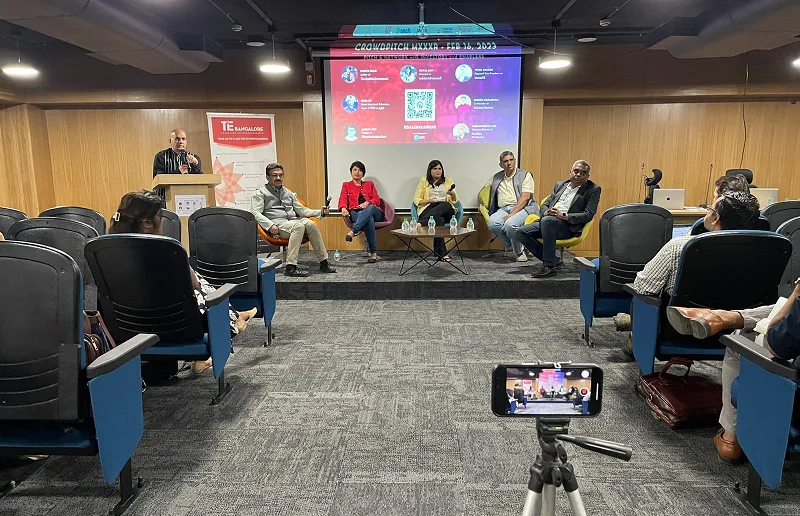
I. Expert panel
The five experts who spoke on the panel were: Dhruti Shah, author of The Resilient Entrepreneur; Payal Jain, Principal at LoEstro Advisors; Sanjay Jain, Partner at Bharat Innovation Fund; Suresh Narasimha, Co-founder at CoCreate Ventures; and Haja Sheriff, Head of Emerging Businesses at AWS.
Two keynote sessions were also featured: Tech and Beyond: EdTech Prospects from Start to Scale by Sunil Acharya PP, South Asia Lead: Education, Space and NPO at AWS; and Scale and Agility: Strategies for EdTech Startups by Vivek Ganesh, Regional Vice President at MongoDB.
As moderator of the panel and coach for the founder masterclasses, here are my 12 takeaways from the wide-ranging discussion, followed by networking with an audience of around 80 entrepreneurs and influencers.
The experts offered insights on success factors for entrepreneurs, trends in the startup ecosystem, and tips for founders.
1. Advantage India: India is in the sweet spot for edtech players, thanks to its large domestic market and potential for international scale. This is still Day one for the edtech ecosystem, with plenty of room for a range of business models and players.
2. Startup ecosystem: India’s startup ecosystem has significantly grown in terms of quantity and quality over the last decade. For example, many incubators and accelerators provide support for edtech startups.
3. Education ecosystem: The education ecosystem spans a wide range of sectors, such as skilling, tutoring, exam preparation, placements, counselling, digital tools, and workflow solutions. It is important for edtech players to engage more with this education ecosystem and not just the startup ecosystem, eg. dialogue with teachers and principals and participate in education fairs.
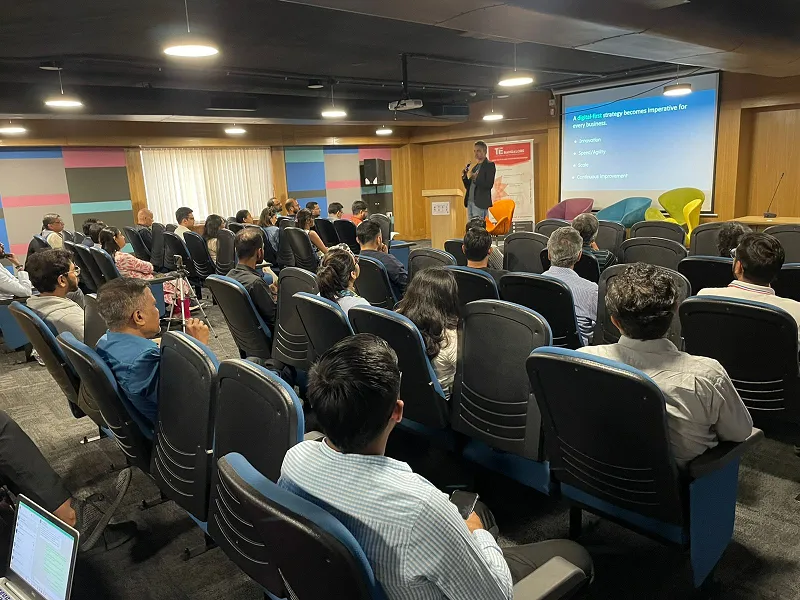
Vivek Ganesh, Regional Vice President, MongoDB
4. Supportive entrepreneurs: There are now four to five generations of entrepreneurs in India who are giving back to the ecosystem via investments, policy advocacy, and mentorship. The new wave of founders can reach out to them for advice, although sometimes, good feedback is harsh feedback.
5. Focus: Founders need to be clear on the Why of their startup—their purpose and mission. They should do thorough research on their positioning and strategy and be clear on why and how they may need to pivot. They should engage with the startup ecosystem but avoid ‘accelerator surfing.’
6. Lifelong learning: Edtech founders need to go beyond mere digitisation of content and processes. They should dig deeper into learning behaviours, learner motivation, and neurodiversity research, and find ways to truly improve the education system. They should spark lifelong learning mindsets and skills in students.
7. Tech trends: AI involvement in education is showing an impact in areas like customisation and personalisation for a variety of learning styles. However, this is still the early days for immersive media like AR and VR.
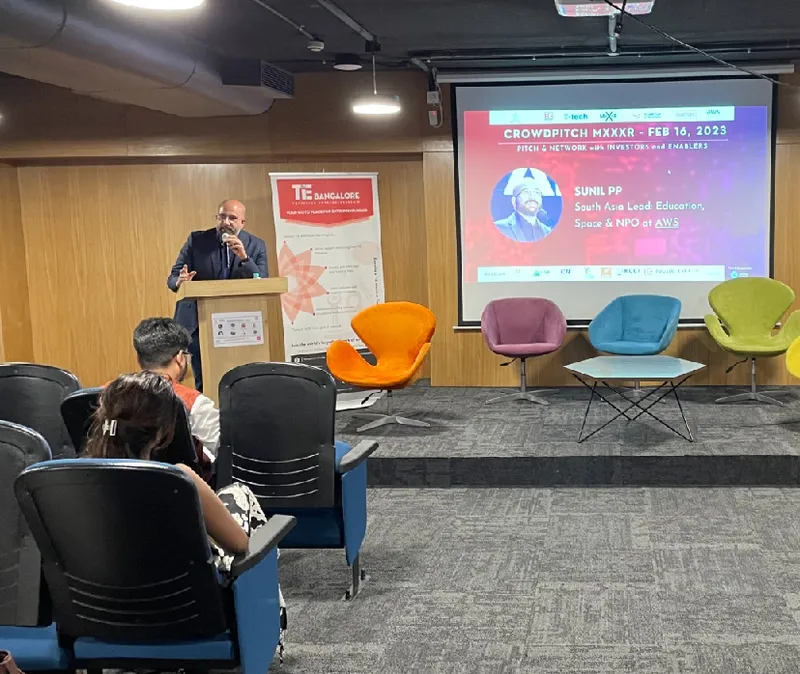
Sunil Acharya PP, South Asia Lead: Education, Space and NPO, AWS
8. Scale strategies: The structure, talent, and technology of the organisation should evolve as the startup scales from tens and hundreds to thousands and millions of users. This will also affect the choice of partners and ecosystem engagement.
9. Digital infrastructure: Players like AWS and MongoDB are helping hyperscalers in the edtech sector with their cloud and database requirements. Scale, speed, agility, global reach, and the ability to innovate continuously are key to edtech success. One use case is real-time analytics for learners on mobile devices.
10. Role of government: Entrepreneurs should stay on top of trends in curriculum development and other educational policies at the state and national level, eg., the NEP. The government is a key enabler, and founders should engage with the departments of education and higher education.
11. Investment: Founders should have absolute clarity when they approach investors in terms of purpose, relationship, and impact. Investors may alter and even distort the focus, speed, and scale of the startup, which may differ from the original vision of the founder. It should be the founder who decides when the startup should become profitable.
12. Pandemic impact: Research studies have revealed a significant drop in learning levels due to the pandemic. Everyone is struggling due to reduced portions and altered delivery styles, and a digital divide for students from lower-income families. There is an urgent need to come up with best practices to tackle these challenges.
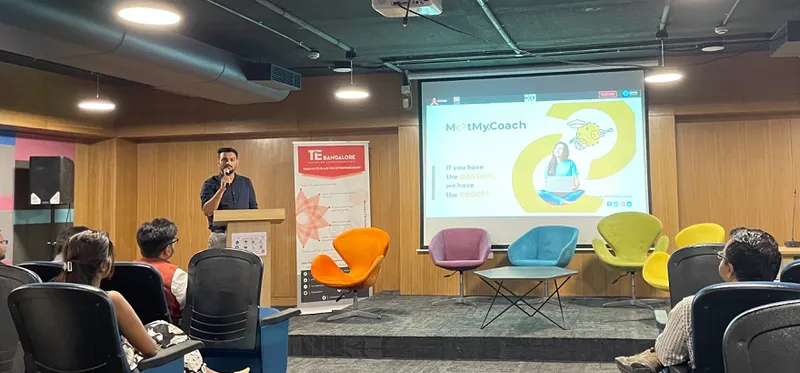
Pitch: MeetMyCoach
II. Startup pitches
The mixer also featured pitches by five startups, some of whom were members of the TiE AWS for Education Cohort. Full pitch decks of the founders are accessible online, a unique feature of the MXXXR event framework.
MeetMyCoach, founded by Anirban Sarkar and Rama Krishna, is an online platform where students and coaches globally meet for live sessions. The platform also tracks performances in 30 subjects like maths, music, sports, and dance. Its quarterly revenues have now crossed $50,000 from 300 coaches and 700 students.
Perceived, founded by Uttam Kumar Pandey, has developed experiential learning solutions for education. Five educational organisations have already signed up as customers, and 25 schools have seen a demo of the VR solution. It has received awards and recognition from the EdTech Startup Challenge and AWS EdStart.
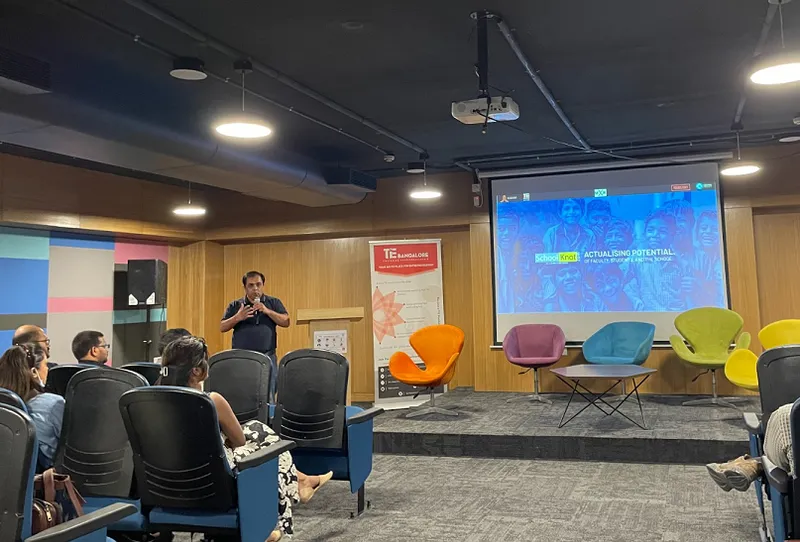
Pitch: SchoolKnot
SchoolKnot, founded by Sikender Shaik and Satish Sawra, is a software solution for school management—from admissions and libraries to communications and transfer certificates. Its clients are schools of sizes ranging from 200 to 13,000 students, including Vignan Group, Jayshree Periwal Group, Delhi Public School, and Solitaire Global School.
Snehix, founded by Surajit Sinha, is developing a tablet based on electronic ink, along with software for education. Textbooks and other study materials are stored in e-book format. There is built-in handwriting recognition and synchronisation of notes between teachers and students. The software has been tested recently at a Bengaluru school.
BeWise, founded by Sethu Raman, is an analytical platform that connects education providers with parents to meet the needs of their children’s learning journey. It is particularly relevant for parents who have moved to a new city. Over 60,000 users have signed up, along with 64 paid partners. The startup has raised Rs 62 lakh in a seed round.
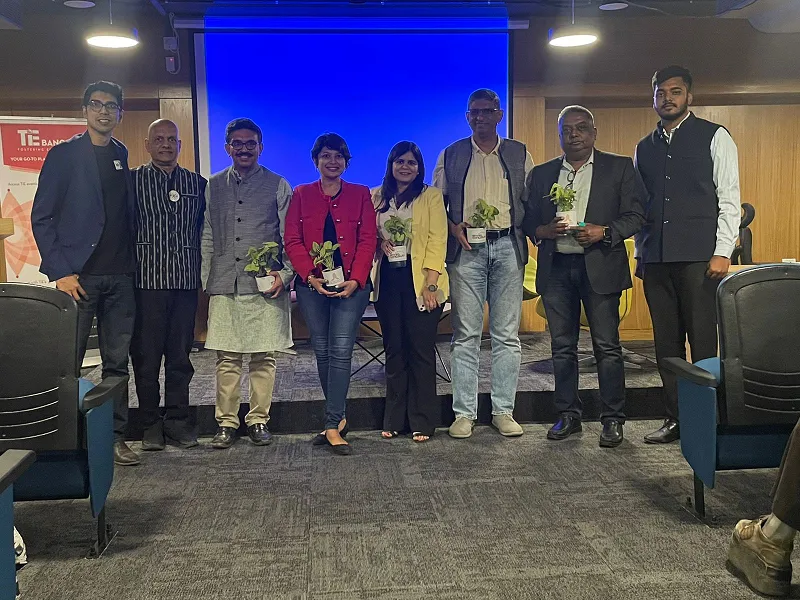
MXXXR EdTech
III. The road ahead
In sum, the experts advised aspiring founders to nurture the strong sense of purpose the education sector requires. It is possible to find success even without the support of investors if the founder’s motivation and drive are strong.
There is notable media coverage of the challenges and shortcomings of some of the high-profile edtech players, particularly after the pandemic. However, this should not dampen the overall prospects of the edtech sector, particularly for those who stay committed to unit economics and ethical practices.
The key is to build a strong product, message, and customer story. Founders should engage with the broader ecosystem and build out their ecosystem. The speakers urged founders to reach out to them for assistance with technology, investment, case studies, peer networks, research resources, and team development.
One of the speakers, Dhruti Shah, is also the author of The Resilient Entrepreneur: Strategies to set you up for success. See YourStory’s Book Review section with takeaways from over 350 books on entrepreneurship, creativity, innovation, and digital transformation.
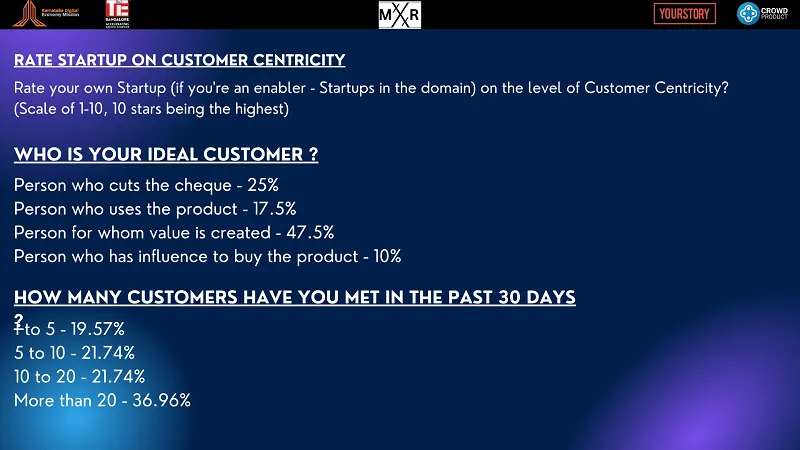
CrowdProduct poll
Other issues raised in the wide-ranging and sometimes heated audience discussion were techniques for reducing customer acquisition costs, the importance of respecting students’ data privacy, skilling techniques for teachers addressing students from bottom-of-the-pyramid families, imparting values to students, and going beyond credentials and certifications as assessment approaches.
All founders were coached via a masterclass on pitching and storytelling techniques, held before the event. The pitch format and structure were also harmonised to deliver a crisp and compelling experience at the mixer event.
Future events by MXXXR will feature themes like fintech, healthcare, and deep-tech at Bengaluru events, and media and entertainment at Mumbai events in March.

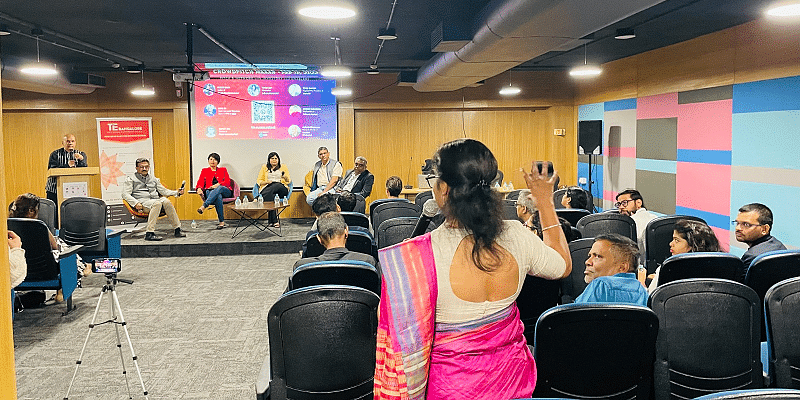




![Read more about the article [Funding alert] Truemeds raises $5M in Series A round from InfoEdge, others](https://blog.digitalsevaa.com/wp-content/uploads/2021/06/Imaget276-1623081675840-300x150.jpg)



